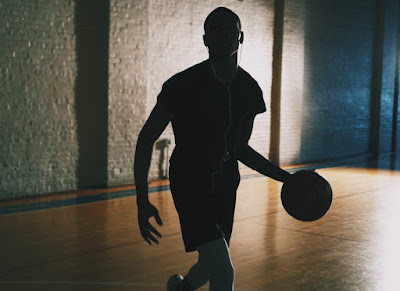The scientific ways to lose weight
There are a lot of different theories on the best way to lose weight, but there's one thing most people will agree on: diet and exercise are important. Dieting alone is often not enough to keep the pounds off for good, but combining diet and exercise can help you shed pounds faster than either strategy alone. If you're looking for some science-backed strategies that will help your body shrink fat cells and keep them from returning (or growing), read on!
Eat less, move more.
It's pretty simple: To lose weight, you need to burn more calories than you consume. That can be accomplished by consuming fewer calories and/or increasing your physical activity level—the former will likely lead to the latter if you make it a habit. It also helps that eating healthy foods is good for your body in general and will help keep hunger at bay when you're trying to shed pounds.
Eat more fiber. Fiber is known for its ability to fill us up without adding significant amounts of fat or sugar, which makes it an ideal way to prevent overeating by promoting satiety—that feeling of fullness after a meal or snack. Fiber also helps balance blood sugar levels in the body so that insulin doesn't spike as much after meals; this prevents some of the negative effects associated with high-sugar consumption like increased cravings for sweets (and subsequent weight gain).
Burn 500 calories per day
The first way to lose weight is by burning 500 calories per day. It's that simple! The average adult burns about 2000 calories per day, so we're talking about cutting out something like one meal each day.
To help you understand how many calories you're taking in and how many you're burning, here are some examples of activities that burn 500 calories in an hour:
Walking at a moderate pace (3 miles per hour) for 1 hour;
Running at a moderate pace (6 miles per hour) for 30 minutes.
So if your goal is to burn 500 calories a day, all you have to do is add an extra 60 minutes of walking or running into your daily routine. It doesn't matter what time of day it is; as long as it's outside of the sleeping hours and isn't spent sitting down doing nothing but watching TV or playing video games (both of which make very little physical activity), then every bit counts! I’m glad to tell you taht we have specially designed protective knee braces for runners, if you need them you can buy them!
Sleep more
Sleep deprivation can impede weight loss in multiple ways. First, it's well-known that sleep deprivation triggers hunger and cravings. When you're tired, your brain is less able to process the signals from your stomach that tell you when to stop eating. So if you haven't slept enough, you're more likely to overeat at dinner or snack on dessert late at night—and therefore gain weight over time.
Second, sleep deprivation causes insulin resistance—the hallmark of type 2 diabetes—which leads to higher levels of fat storage in the body. It also increases cortisol production, a stress hormone that causes belly fat buildup around organs like the liver and pancreas. Finally, research has shown that people who don't get enough shut-eye tend to eat more often throughout the day than those who do get enough restful slumber.
Hopefully, you’re now more knowledgeable on how to lose weight. If so, we have a challenge for you: try it out! We think you’ll see that eating healthy and exercising regularly is an important part of living a long and happy life.



Comments
Post a Comment